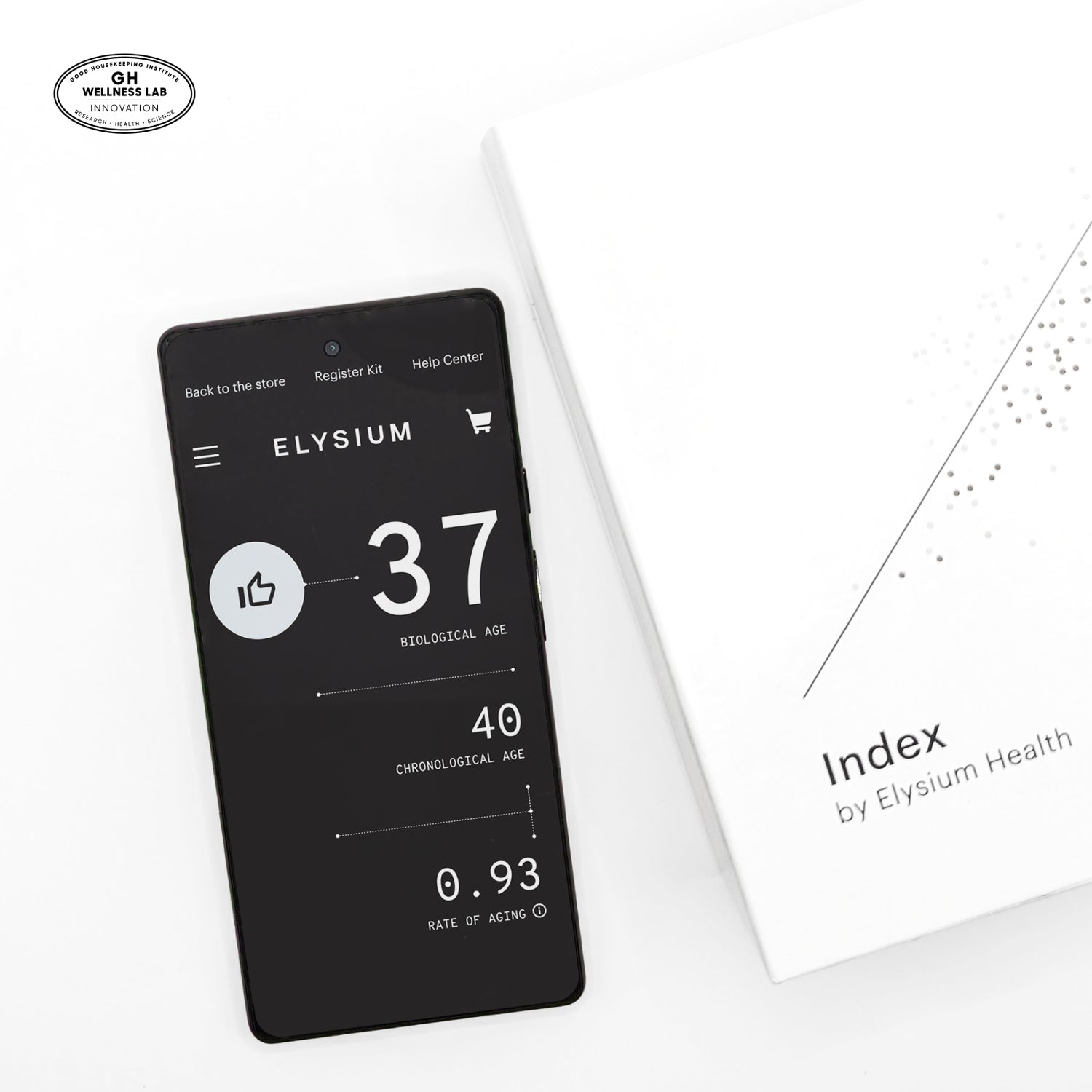Key Takeaways:
- Collagen is the most abundant protein in the human body. It gives structure to bone, muscles, tendon, cartilage, and skin.
- Collagen levels decrease starting in our 20s. Over time, the lack of collagen can lead to stiff joints, less mobility, and weak bones.
- Collagen peptides can help boost collagen levels, improving joint pain and bone health.
Related products:
Cofactor: Combines grass-fed collagen peptides, vitamin C, and hyaluronic acid along with NR to target collagen loss at its source and support healthy collagen production. When taken regularly, Cofactor helps to reduce fine lines and wrinkles, and supports bone, joint, hair, and nails.
Collagen supplements are a buzzy topic these days. We often hear about their benefits for skin, hair, and even nails. However, collagen also plays an essential role in joint and bone health. In the body, collagen, a protein, makes up connective tissue and provides structure and strength in bones, muscles, tendons, cartilage, and skin.
Researchers have identified 28 different types of collagen, but the focus is on five main types in the body. Type I and II collagen play a role in joints and bones. Type I collagen is found in skin, ligaments, tendons, and bone, accounting for 90% of the collagen in your body, while type II collagen is found in cartilage, which provides joint support. (Type IV collagen is found in the layers of your skin; Type V is found in your eyes, hair, placenta tissue, and also some layers of skin.)
Our natural collagen supply, which is formed by amino acids, dwindles with age due to less collagen production, and an acceleration in the breakdown of existing collagen. Collagen loss starts in the mid-20s, with research suggesting that we lose 1% of our collagen every year. After menopause, collagen loss increases for women, but both females and males will lose significant collagen after age 60.
Figure: Decline in collagen levels in the skin (per unit of skin surface area). Adapted from: Shuster, S. et al., Br J Dermatol. 1975;93(6):639-643; Brincat, M. et al., Obstet Gynecol. 1987;70(6):840-845.
So, how does that collagen loss affect joints and bones? As you age, you may experience:
- Stiffness in your joints
- Joint pain
- Loss of mobility
- Less flexibility
- Bones can become more brittle and vulnerable to fracture
How does collagen supplement improve joint and bone health?
Emerging research suggests collagen peptides benefit joint and bone health. Collagen peptides are short, easily absorbed fragments of collagen, produced by breaking down collagen isolated from various animal sources using an enzymatic hydrolysis process. These peptides contain short chains of amino acids necessary for collagen formation. Here’s a look at what those studies have shown:
Collage peptides stimulate collagen production
Preclinical studies suggest that oral intake of collagen peptides reach the tissue of interest and stimulate cells to synthesize collagen. In one study published in The Journal of Nutrition, mice were orally administered radio-labeled collagen peptides to track their subsequent distribution in various tissues and organs. While labeled collagen peptides were found in various tissues, including the skin, liver, kidney, spleen, and skeletal muscle, there was a pronounced and long-lasting accumulation in cartilage. Another study in Cell and Tissue Research showed that treatment with collagen peptides stimulated cartilage cells to synthesize type II collagen in a dose-dependent manner.
Collage peptides provides joint support
A human clinical study in the Journal of the Science of Food and Agriculture found that after 13 weeks of supplementation with collagen peptides, participants with knee conditions saw significant improvements in their WOMAC score, a clinically validated questionnaire that assesses joint discomfort, function, and stiffness, and VAS score, a tool used to measure the intensity of pain.
Collage peptides support bone density
There is both preclinical and clinical evidence that collagen peptides support bone health. A study in the journal Bone reported a significant increase in bone mineral density and bone strength in ovariectomized mice, a preclinical model of postmenopausal osteoporosis, following oral administration of collagen peptides. And treatment of bone cells isolated from the tibia and femur marrow of mice with collagen peptides, stimulated the expression of ALP, a marker of bone formation.
A randomized, double-blind placebo-controlled human clinical trial published in the journal Nutrients examined the effects of collagen peptides on bone mineral density and markers of bone health in postmenopausal women with reduced bone mineral density. After 12 months of supplementation, bone mineral density significantly increased in the spine. There was also an increase in PINP, a marker of bone formation, and indications that the collagen peptides may have prevented bone degradation during the supplementation period.
Target the root cause of collagen decline—aging cells
What do collagen and NAD+ have in common? Like collagen, levels of NAD+—a critical coenzyme found in every cell in your body that helps keep cells youthful and functioning optimally—naturally decline with age. NAD+ decline is a hallmark feature of aging, impacting the health and function of the cells that produce collagen.
Preclinical evidence shows that aged fibroblasts treated with NAD+ precursors produce more collagen—like more youthful fibroblasts (Oblong, J.E., et al., 59th Annual Meeting American Academy of Dermatology, Washington, 2001).
Cofactor by Elysium Health provides an advanced 4-in-1 collagen support system that targets the root cause of collagen decline by combining:
- Collagen peptides (from grass-fed sources) to stimulate collagen production
- Nicotinamide riboside, a clinically proven NAD+ booster to help improve the health and function of collagen-producing cells
- Hyaluronic acid, a natural component of the fluid that lubricates joints and provides hydration in the skin
- Vitamin C, an essential cofactor for collagen.




